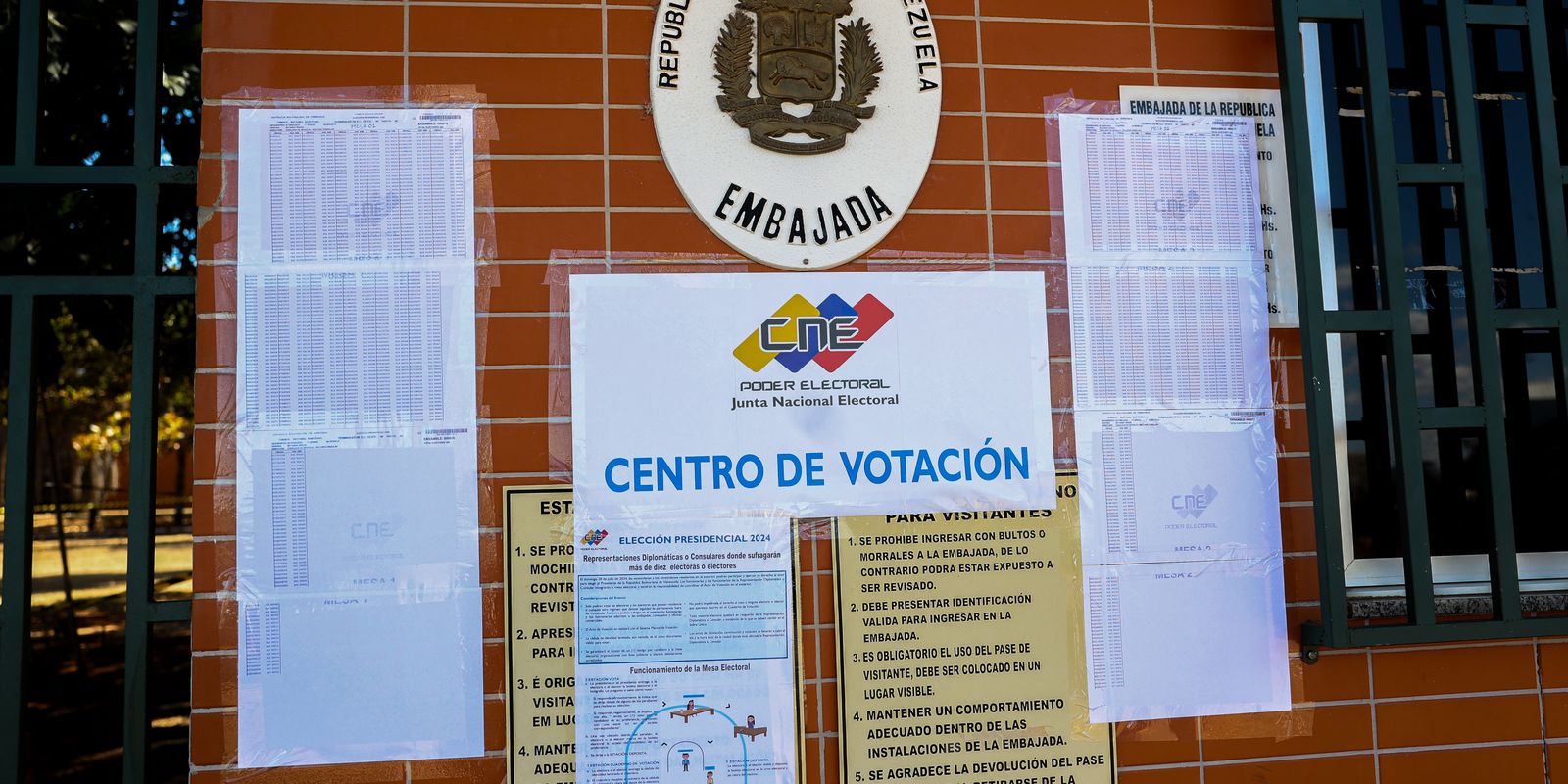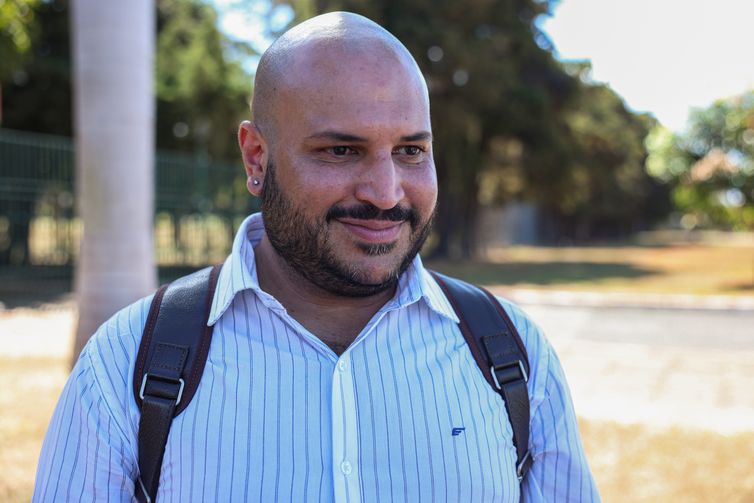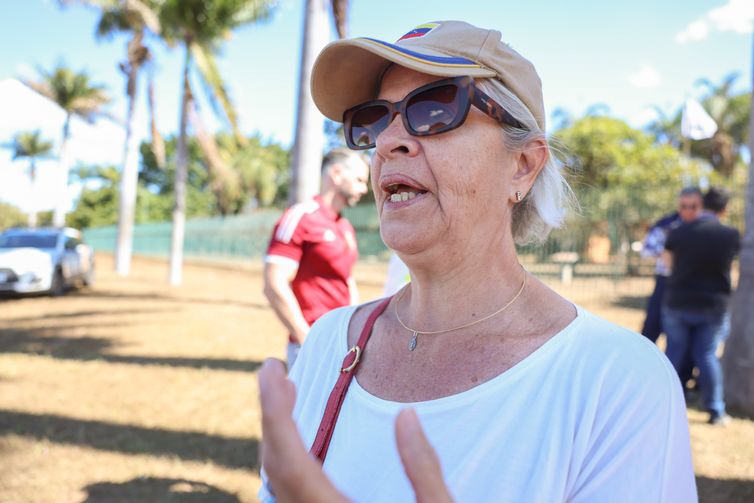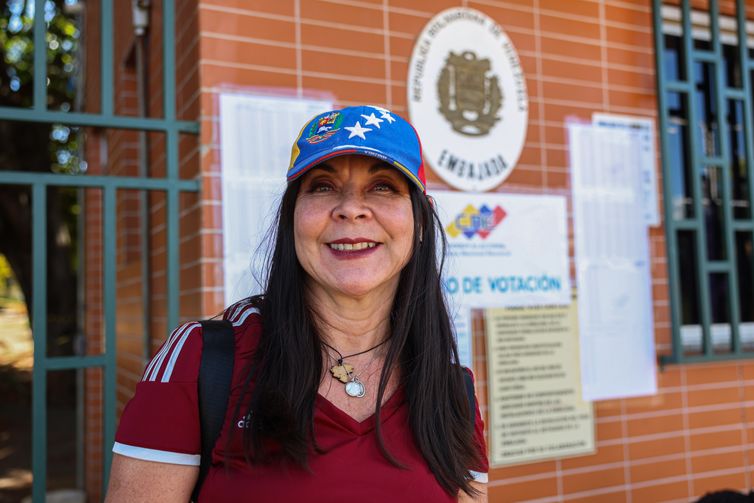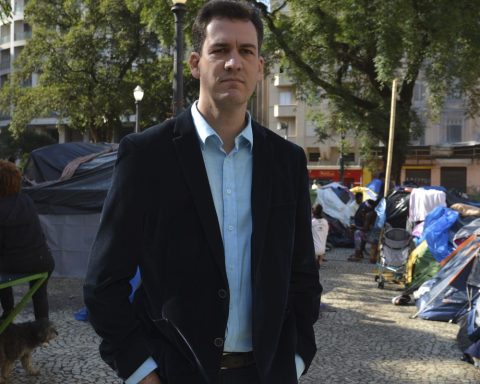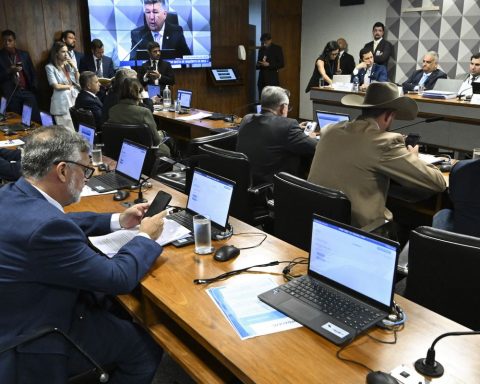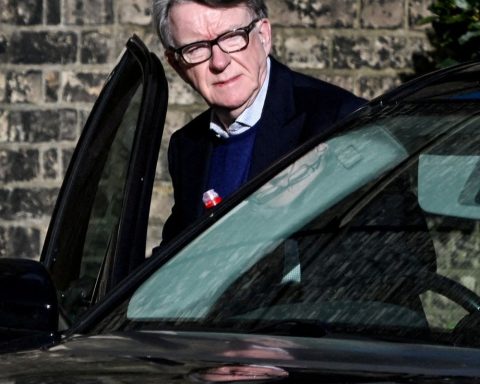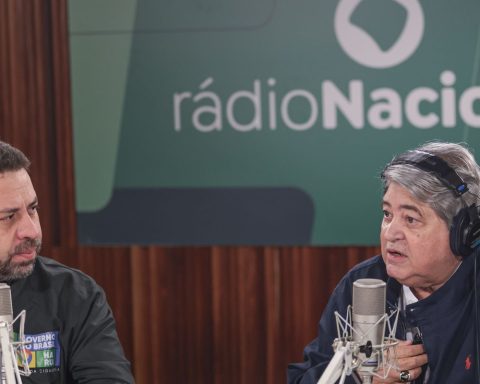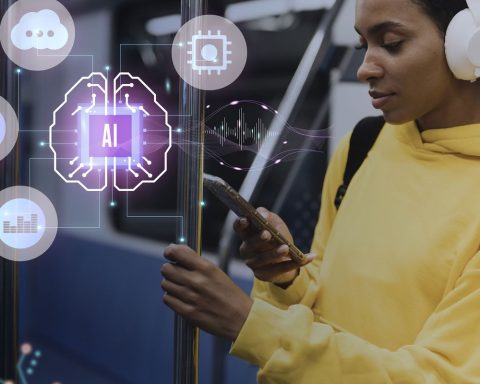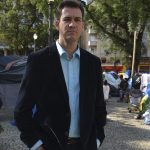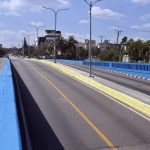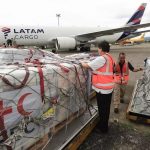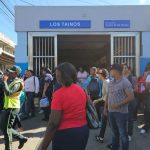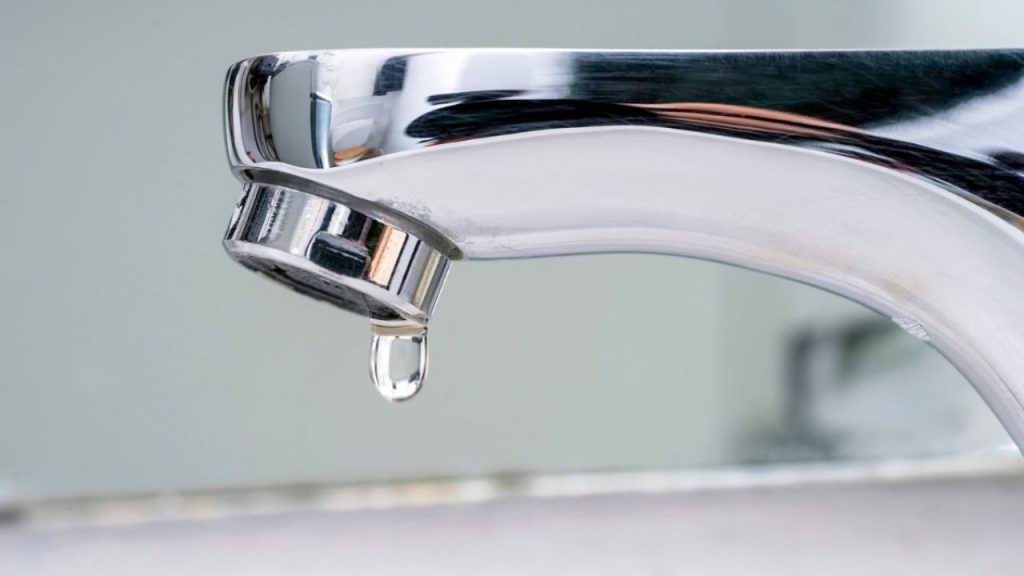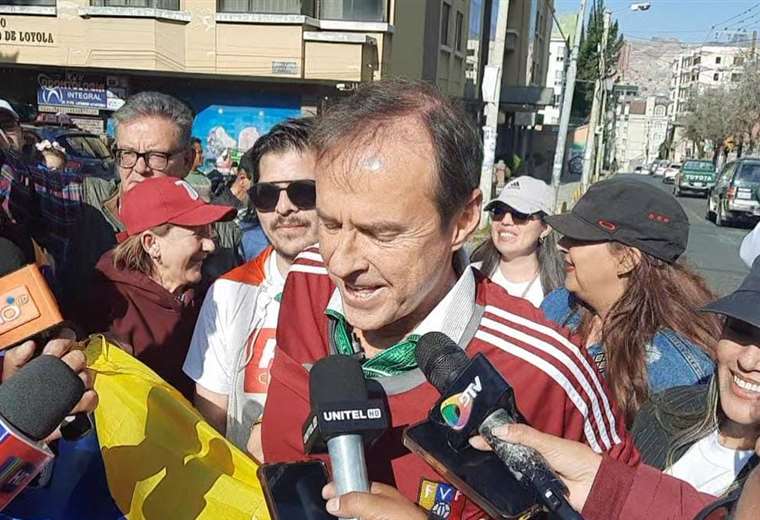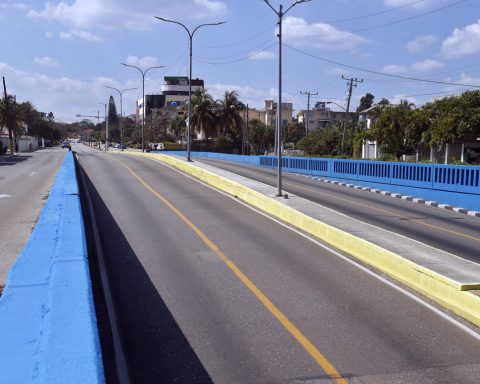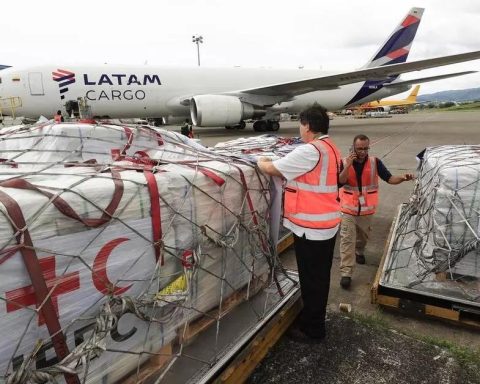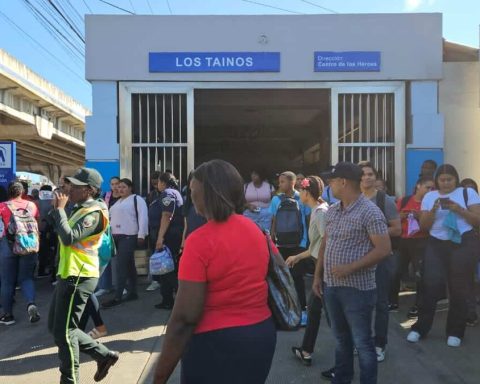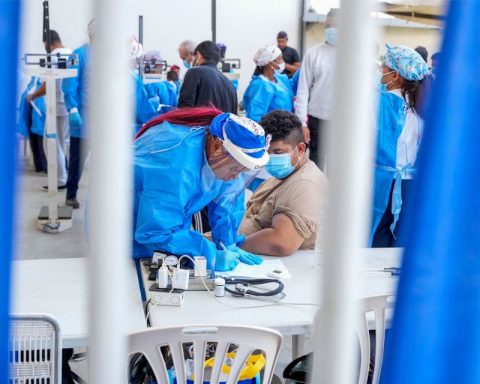Journalist Manuel Quilarque traveled from São Paulo to Brasília to vote in the elections that will choose the next president of Venezuela, who will govern the South American country between 2025 and 2031. He and other voters who were at the polling station at the Venezuelan Embassy, in the capital of Brazil, this Sunday (28), expressed the desire for change and for the result of the polls to be respected by the authorities.
“We are very hopeful that we can regain freedom in our country, that we can finally have a process of reinstitutionalization. And also that people who are outside Venezuela, in vulnerable situations, who are going through a lot of hardship, can finally return to the country under favorable conditions,” he said.
Current President Nicolás Maduro has been in power since 2013 and faces nine candidates in today’s election. This is the first election since 2015 in which the entire opposition has agreed to participate. Since 2017, the main opposition parties have been boycotting national elections.
>> Understand how the election in Venezuela works and what the criticisms are
According to the journalist, who has lived in Brazil for 15 years, of the approximately 500,000 Venezuelans living in the country, only 1,059 have managed to register to vote. Having been registered for many years, he says he had no difficulty voting. His brother, on the other hand, who lives in Spain, was unable to register to participate in the election.
Quilarque says that the electoral system is reliable, but that other issues affect the election as a whole.
“This fraud does not occur in the electoral system, it does not occur in the electronic ballot box, it does not occur in the count, it occurs before. It occurs when they do not let you register, when they do not let you vote for some reason, when public employees are required to take photos and send them, when there is a monitored vote,” said the journalist who is betting on a likely victory for the main opposition candidate, Edmundo González Urrutia.
Venezuela’s electoral polls disagree on the outcome of the presidential election. While some polls give the victory by a wide margin to Edmundo González Urrutia, other surveys point to a victory for the current president Nicolás Maduro, also with a comfortable margin.
Difficulties
In 2019, President Jair Bolsonaro broke off relations with the Venezuelan government and all consulates in Brazil were closed, leaving only the embassy in Brasília as a polling station. In addition to bureaucratic obstacles, logistical and financial issues make it difficult to participate in the election.
“At most, about 30 people must have voted,” estimates Quilarque. “Because if you live, for example, in Manaus, in Boa Vista, these are very distant places, these are people who are already in a vulnerable condition and taking a plane to come here has a cost,” said the journalist.
The report of Brazil Agency was unable to contact authorities at the Venezuelan embassy in Brasilia. The person responsible for the reception at the location only reported that voting was taking place normally. The panel fixed outside counted the 1,059 voters eligible to vote in the country.
Around the world, Venezuelans have reported difficulties voting abroad. Of the country’s nearly 8 million emigrants, half are of voting age, but few have overcome the bureaucratic obstacles.
Lawyer Paula Marcondes was one of the Venezuelans who was unable to register to vote, but went to the embassy to express her support for the opposition to Nicolás Maduro’s government. “My hope is that finally, after 24 years, we will be able to change something for the better,” said the woman, who has two daughters and only one of whom is eligible to vote in the elections. “What we hope for is a massive result that will be impossible to hide,” she added.
Systems analyst Sônia Mejia also traveled from São Paulo to Brasília to vote. She has been in Brazil for 17 years, where she works in confectionery. She hopes that “the will of all Venezuelans” will be respected and that the country can “get out of this situation that it is in.”
“May this be a result for the progress of Venezuela, a free, prosperous, abundant and flourishing Venezuela,” he said. “I wanted to cast my vote and do something to change, because I believe that if we want change in the world, in the country, in anything, we have to do something. So, I wanted to exercise my right and vote, and here I am, I have already voted, I am happy. And we hope that everything will be for the good of Venezuela,” he added.
Economy
The South American country has been facing a financial and commercial blockade since at least 2017, when powers such as the United States, Canada, the United Kingdom and the European Union began to not recognize the legitimacy of the Maduro government. The neighboring country also went through a serious economic crisis during this period, with hyperinflation and a loss of around 75% of its GDP (Gross Domestic Product, the sum of all goods and services produced in the country), which resulted in the migration of more than 7 million people.
Since mid-2021, the country has been showing some economic recovery. Hyperinflation was controlled, and the economy returned to growth in 2022 and 2023, however, wages remain low and public services deteriorated.
Since 2022, the economic embargo has been partially relaxed and an agreement between the opposition and the government was signed for this year’s elections. However, reports of arrests of opponents in recent days and refusals to sign an agreement to respect the election results by some opposition candidates, including the favorite Edmundo González, are playing questions about the day after the vote.
